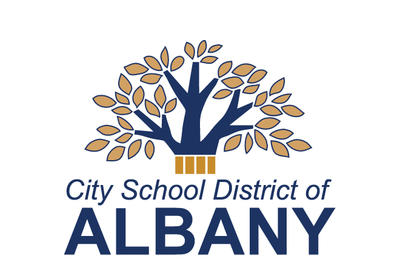
Title I and the School-Parent Compact
Title I is a federal assistance program for our nation’s schools. Its goal is to help all students receive a high quality education. Title I provides extra support to those students who are furthest from meeting the state academic standards.
In the City School District of 麻豆影院, Title I funds are used to provide supplemental intervention services to students most at risk of not meeting the standards through additional classroom teacher intervention, afterschool tutoring and summer school programs. Some funds are also used to provide professional development to teachers to increase their ability to provide high quality education and to better enable them to collect and analyze student data to increase student achievement.
In addition, a Building Leadership Team comprised of principals, teachers, parents and district administrators was formed at each of the district’s schools to create a School Comprehensive Improvement Plan tailored to each school that would improve the academic success of all students. For more information on your school’s improvement plan, visit our website or contact your building principal.
Title I also requires and supports district’s efforts to involve and engage parents in their child’s education. Examples of these include Open House Nights, Parent-Teacher Conference Days, Literacy and Math Nights, workshops for parents, Parent-Teacher Associations, and inclusion of parents on school and district committees. Another way the district involves parents in their child’s education is through the School-Parent Compact.
The School-Parent Compact
A School-Parent Compact is a written agreement that outlines how all members of the school community (Administrators, Teachers, Support Staff, Parents and Students) will share the responsibilities for improving student academic achievement and the means by which everyone will build and develop a partnership to help students achieve the state standards.
- The school’s responsibility to provide high-quality curriculum and instruction in a supportive and effective learning environment;
- The ways in which parents and guardians can support their child’s learning at home and through communication with the school; and
- How students can take responsibility for their own education and how they can utilize the support provided through their parent(s) or guardian(s) and the school.
Compact responsibilities
- Provide high-quality, culturally relevant, grade level curriculum and instruction in a supportive and effective learning environment;
- Communicate with parents in a format and language that they can access and understand;
- Provide opportunities for parents to learn about the curriculum and the learning expectations for their child;
- Provide parents support and training on how to support their student learning and access school technology resources;
- Provide opportunities for parents to learn about social emotional learning and best practices for supporting student behavior;
- Hold parent-teacher conferences; during these conferences this compact will be discussed as it relates to your child’s academic achievement;
- Provide parents and guardians with frequent reports on their child’s progress;
- Provide opportunities to connect with and access school staff to ensure the best partnership that supports student success;
- Provide parents with opportunities to volunteer and participate in their child’s class and to observe classroom activities; and
- Provide parents and students the opportunity to advocate for the best learning supports and environment for the student.
We, as parents and guardians, will support our children’s learning in the following ways:
- Monitor my child’s attendance and ensure that they are in school on time every day they are healthy;
- Monitor my student’s academics and ensure that digital and paper assignments are completed;
- Ensure that my student is supported social-emotionally, academically and behaviorally;
- Ensure that social media, television and electronics use is limited and balanced with other positive activities;
- Participate in school events and/or volunteer in my child’s school;
- Participate in decisions regarding my children’s education;
- Stay informed about my child’s education and communicate with the school regularly about my child’s social and academic well-being;
- Be an active participant in my child’s education, communicate with the school regularly and be a contributing member of my school community;
- Provide timely notification to the school and central registration when there is a change to the family address, phone number and emergency contacts;
- Provide up to date records for your child (physicals, immunizations, custody paperwork, etc.)
- Sign up for school and district communication tools; and
- Review information and notices sent home by the school and district to stay informed;
- Contact the school when assistance is needed to complete the parent/guardian responsibilities listed above.
As a student, I will share the responsibility to reach my full academic and social emotional potential, and agree to:
- Complete my assignments and homework to the best of my ability and ask for help when needed;
- Attend school and all classes on time every day that I am healthy;
- Set goals for success and monitor my academic and behavioral progress;
- Engage in learning in class and at home;
- Adhere to school expectations (Be safe, Be respectful, Be responsible, etc.) and the code of conduct guidance;
- Be accountable for myself and my behavior;
- Advocate for myself or ask for help with peer-to-peer, teacher, and staff relations;
- Use technology productively and purposefully to enhance my learning;
- Read at least 20 minutes a day outside of school; and
- Provide to my parents all notices and information received from my school.
Our DCIP and SCEPs
Targeted planning is an essential component of the district and school improvement process and is accomplished in the development of the DCIP (District Comprehensive Improvement Plan) and SCEPs (School Comprehensive Education Plans).
Annually, the City School District of 麻豆影院 convenes a group of stakeholders to review our progress in achieving the goals of the DCIP and to plan next steps for the upcoming year; the schools conduct a similar process at the building level. The DCIP goals are centered on district support for the schools to reach their academic and social-emotional learning goals for students.





